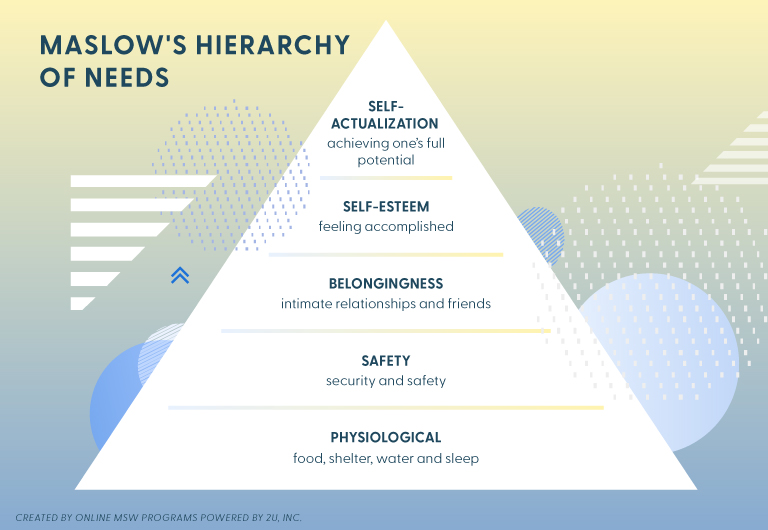How to Maintain Motivation After Losing a Job

A young woman is flourishing in her career as a retail manager. Suddenly, a major crisis—say, a global pandemic—causes her store to shut down. She loses her job, she loses her income, and she’s forced to move back home with her parents. This unexpected derailment from her career path causes the woman anxiety and depression, and she begins to question how she is going to start over. Dr. Wendy Talley, a licensed clinical social worker, is navigating this very experience with one of her clients.
“Around this time of uncertainty, losing a job hits harder because the world doesn’t even know what the next step is going to be,” said Talley. “A world without COVID-19 meant there were always different possibilities to choose where you end up.”
Millions of people across the United States are in similar situations as Talley’s client. And the Kaiser Family Foundation reports that more than half of American adults who have lost a job or income say they experience negative mental health effects like worry and stress related to COVID-19.
54%
of adults who experienced job or income loss have had worry or stress related to the coronavirus that has negatively affected their mental health.
Staying positive through the coronavirus pandemic is no simple feat. But maintaining motivation in these circumstances with any job loss situation may be especially challenging—as well as vitally important—for individuals who want to overcome economic hurdles.
What Are the Emotional Effects of Job Loss?
Unemployment signifies more than a loss of income; it’s a very real threat to a person’s sense of security and professional identity. The mental and emotional effects of losing a job can feel very similar to the grief process, Talley said.
That process has multiple stages, including:
Denial. The individual is in disbelief and wondering how this could happen.
Shock. They experience fear, panic and uncertainty, accompanied by feelings of hurt.
Anger. They feel frustrated that something they need to survive was taken from them.
Depression. They begin to feel hopeless, as if they are in a dark place they can’t crawl out of.
Isolation. They withdraw and may be overcome with worry about what will happen next.
This cycle can extend for long periods of time, Talley explained, disrupting a person’s routine and socialization patterns and potentially leading to depression.
Unemployment depression is one form of situational depression. According to the National Alliance on Mental Illness, situational depression is considered more temporary than clinical depression, but it produces similar emotional and behavioral symptoms, such as poor appetite and sleep schedule.
CLINICAL DEPRESSION:
- Occurs with or without a stressful trigger.
- Causes severe symptoms that can impair functioning.
- Puts individuals at greater risk of suicide or suicidal ideation.
- Leads to feelings of worthlessness, guilt and irritability.
SITUATIONAL DEPRESSION:
- Can be triggered by an overwhelming life stressor such as job loss.
- Results in symptoms that are reactive but do not always impair functioning.
- Leads to withdrawal from loved ones and previously enjoyed activities.
- Causes headaches, low energy, frequent crying and trouble concentrating.
People may also feel personally embarrassed by job loss, said Mary Pender Greene, a licensed clinical social worker and certified group therapist who has expertise in career coaching.
“When we meet new people, the first thing that’s usually asked is, ‘What do you do?’ Jobs help define your sense of self and shape how you see yourself,” Pender Greene said.
According to Pender Greene, individuals may cut off connections and remove themselves from their social groups. Living alone in quarantine can exacerbate this psychological disconnect.
She also warns that people who are experiencing unemployment depression may self-soothe with addictive behaviors, such as smoking, drinking, eating and gambling, which can dampen their ability to make progress toward improving their mental health and finding a job.
How Does Job Loss Affect Motivation?
Psychology Today defines motivation as “the desire to act in service of a goal.” It can be inspired by outside forces, such as people or events, or it can come intrinsically. It’s often a response to our hierarchy of needs:

Mallow’s hierarchy of needs in descending order includes the following: self actualization, or achieving one’s full potential; self-esteem, or feeling accomplished; belongingness, or intimate relationships and friends; safety and security; and physiological needs, such as food, shelter, water and sleep.
Lack of employment can be a threat to fulfilling those needs and may motivate people to seek out new jobs. However, job loss itself can lead to lack of motivation. When people experience extended periods of unemployment, they may feel increased anxiety (PDF 476 KB) that causes them to shift away from job-searching to controlling disruptive emotions.
“Unemployment, and especially long-term unemployment, can affect people’s spirit and sense of self,” explained Pender Greene in a separate interview on the effects of chronic unemployment. “[A]s a result, during interviews, [long-term unemployed individuals] may be weary, depressed and frustrated, and it comes across. They might feel desperate at times, and it shows in the interview.”
Age can also play a role in maintaining motivation during a job search. People in the 18 to 25 age group are often new to the workforce and may be experiencing their first professional workplace. They tend to be fast-moving and excited to start their lives, Pender Greene said, and their job is a big part of their identity.
“They’re more likely to be distressed when they lose a job because they’ve just graduated and it’s depressing for them to be delayed in getting ahead with their career,” she explained.
But older adults can find losing a job to be an even more devastating blow, especially if they are at the end of their career.
“When you lose your job later in life, you’re thinking … ‘no one’s going to hire me at this age’ or ‘I’ve lost my last chance,’” Pender Greene said.
These individuals can feel limited in their career options, deflating their sense of motivation.

How to Stay Motivated After a Job Loss
Staying motivated is easier said than done, especially during a pandemic when options are more limited. But Pender Greene stressed that it’s important to recognize two things:
1. Job loss is situational.
2. It’s not worth it to blame yourself.
Millions of people are living this new normal, which will take adjustement. Some ways to make those adjustments include:
PRIORITIZE MEETING YOUR BASIC NEEDS FIRST.
Learn about unemployment benefits that can help cover living and health care costs. Don’t be afraid to reach out to a helping professional like a social worker who can assist you in applying for these and connect you with local programs to meet other needs. Reducing stress related to how to meet basic needs can help you focus on the job search.
CONSIDER YOUR MENTAL HEALTH A TOP-TIER NEED.
Mental health can fall on the back burner when you’re worried about pressing issues like how to pay for food. But maintaining your mental health is important. If you need professional help, consider asking a therapist whether they have a special rate for people who are unemployed. To reduce stress and anxiety, you can also try meditation, yoga or light exercise at home.
STAY CONNECTED WITH YOUR NETWORKS.
Avoid completely isolating yourself or staying in the house. Get outside for a walk, even if it’s just 15 minutes. Develop a daily routine that provides structure and consistency and includes time set aside to socialize with friends or former coworkers—even in a quarantine, utilize video chats and phone calls. Those conversations not only help put you in a better mood but may also lead to job opportunities that you wouldn’t have known about otherwise.
FOCUS ON WHAT MAKES YOU HAPPY.
Try not to allow one unfortunate situation affect the other areas of your life. Maintain your hobbies and lean in to doing things that bring you joy. Just because you aren’t working at the moment doesn’t mean you can’t have fun. Volunteering is one way to do something positive for others that also provides you networking opportunities.
DEVELOP A JOB SEARCH PLAN.
Be very intentional about how you want to go about looking for your next job. Critically examine your skillset and understand your strengths. Update your resumé and LinkedIn page. Develop a list of jobs that you want to apply for and research those companies to make sure they would be a good fit for you. Set aside a specific time of day that will be devoted to the job search, and set a goal for the number of jobs you plan to apply to.
PRACTICE YOUR INTERVIEW SKILLS.
Anticipate questions that interviewers may ask and write out responses that emphasize your transferable skills. Do mock interviews with friends who may be able to point out needed improvements that you can’t see. Remember that you bring value to the workplace. Avoid appearing too eager to the point of seeming desperate; you want a job that wants you. It may also be helpful to set aside a space that has an organized backdrop if you are doing interviews virtually.
INVEST IN YOUR SKILL SET.
While they are searching for a new job, some people find the extra time allows them take webinars, trainings or classes that will help with the development of new skills. Social workers can potentially connect individuals with workforce development programs in their areas. But skills don’t have to be completely work related. Exploring a new hobby can allow you to build networks or spark interests in jobs that you wouldn’t have considered.
DON’T BE AFRAID TO ASK FOR HELP.
Social workers, counselors, career coaches and therapists are available to you on your journey. People of color, people with disabilities, LGBT people and other groups may also have specific business or resource networks that offer assistance with the job search. Connecting with others who have shared life experiences is a great way to build networks. Remember that there is no shame in asking for assistance. Finding a job can be tough, and support is always welcome.
Ultimately, looking at each day as an opportunity can foster the mindset needed to continue moving toward the goal of finding a job, even in tough times.
“Unemployment provides a silver lining in the sense that you wake up in the morning and you have the option of making some choices as to how your day is going be,” Pender Greene said. “Action gives us hope and motivation.”
This article is for informational purposes only. If you or somebody you know if struggling with your mental health as a result of job loss, consider reaching out to a mental health professional for help.
Are you interested in a career supporting people through economic challenges or helping to provide workforce development programs? Learn more about how to become a social worker.
This article was posted in August 2020.

